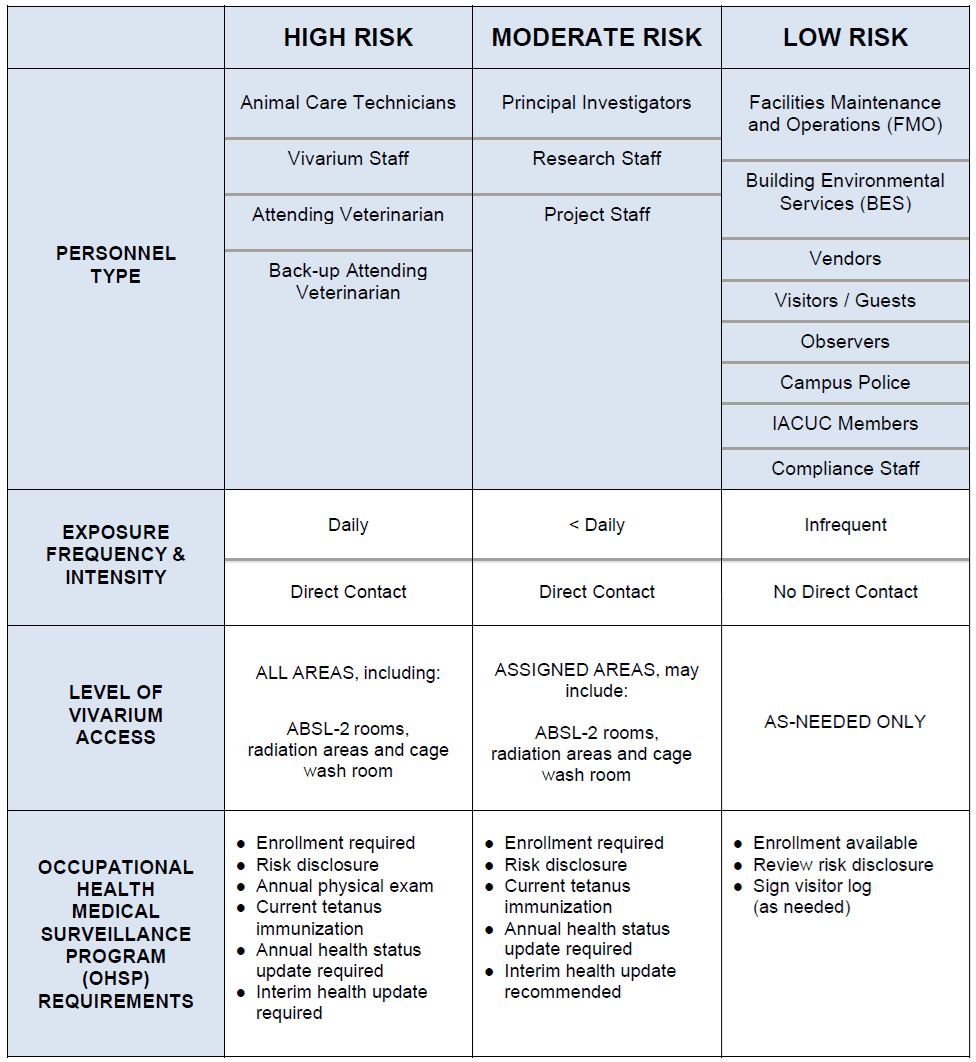Occupational Health Surveillance Program
In fulfillment of federal regulations, the Animal Care & Use Program at UNC Charlotte maintains a program of occupational health surveillance to minimize risks to personnel that have contact with live vertebrate animals used in teaching or research. This program is intended to address risks for individuals with varying frequency and intensity of exposure to animals used in research or teaching, either on campus or in the field.
Additionally, use of personal protective equipment (PPE) is an integral component of risk mitigation and is an absolute requirement when working in procedural/animal holding areas of the Vivarium and in laboratories where live vertebrate animals are used or animal tissues/fluids may be handled.
An unaffiliated healthcare provider administers the Occupational Health Surveillance Program (OHSP). Per the Occupational Health Surveillance Policy, all individuals who are exposed to animals or animal tissues at UNC Charlotte are required by the Institutional Animal Care and Use Committee (IACUC) to enroll in the OHSP prior to initiating their work or being granted access to the Vivarium. To enroll or update your enrollment in the OHSP, use the forms provided in the table below. Consult the menu items on this page to view submission instructions for these forms or to learn more about the OHSP.
